Feature 011 • Apr 10th 2023
- Photos by Elizabeth Sunflower, Written and curated by Ricki Blakesberg of the Retro Photo Archive
Elizabeth Sunflower (1943 - 2008) was a prolific photojournalist based in San Francisco, CA. She lived and worked out of the North Beach neighborhood which was ground zero for the “beat movement” of the 1950's. This series of photographs, taken from 1970 to 1972, focuses on events that were part of the North Beach strip club culture. The photographs are divided into unique storylines that weave together to tell a larger narrative. The images focus on avant-garde sex workers that were emerging from the underground and normalizing sex in a time where the socially marginalized were misunderstood and less tolerated.
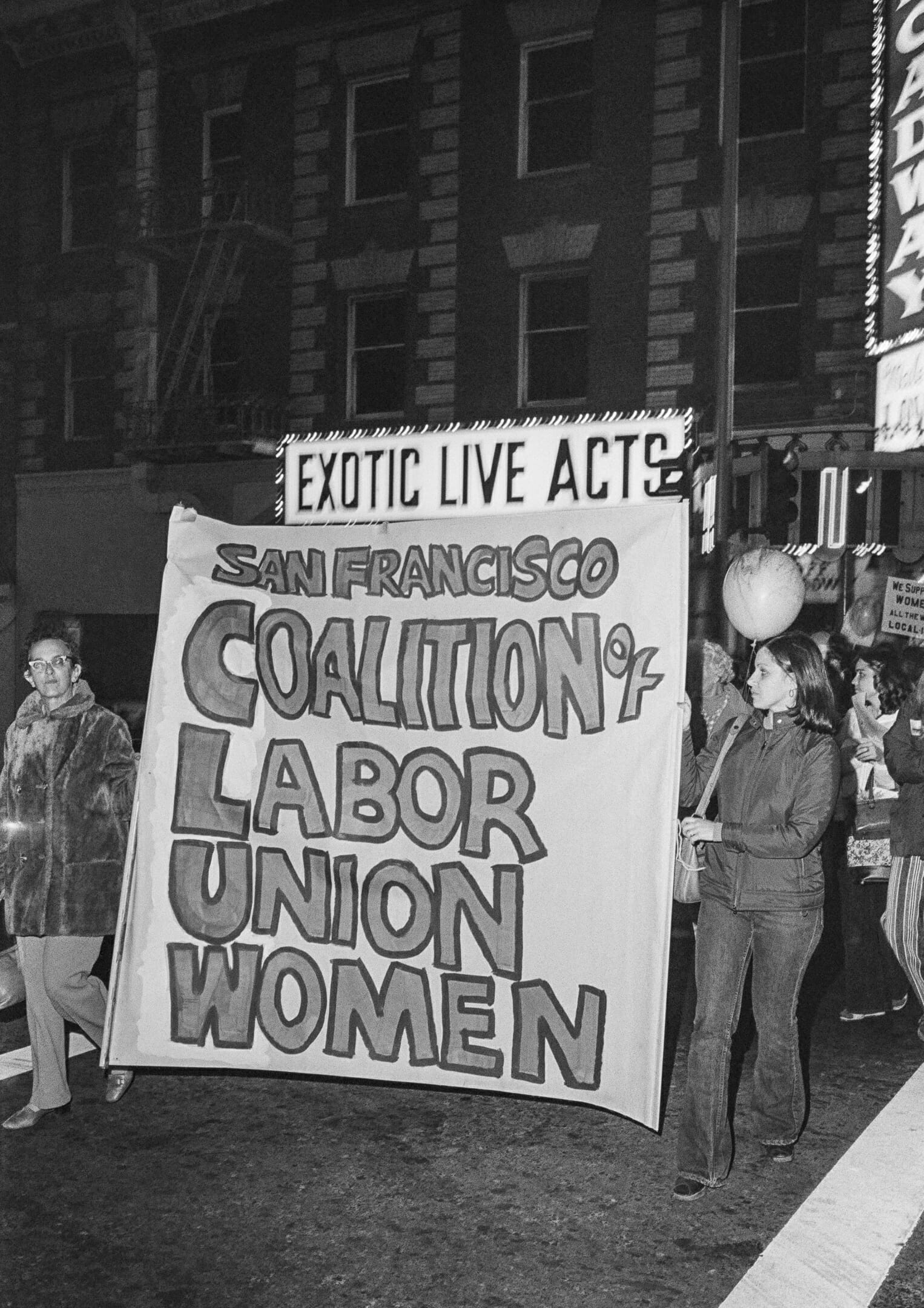
San Francisco has always been a very progressive city, and the strip club workers were no exception when it came to the rights they felt they deserved as part of the city workforce. The stripper movement of this time was heavily rooted in the women's liberation movement of the time.
The issues we find in this series parallel both the women’s liberation movement of the 1960s and 1970s and current day struggles with equal rights. We can see in Elizabeth Sunflower’s images the tension between morality, equality and justice that continue to be relevant today. These photographs display early signs of the feminist movement and the strength of women uniting to claim their power. 50 years later, we find ourselves protesting many of the same rights and issues that this group of women fought to address and which are being threatened by a group of conservative men (and women) in positions of power. Sunflowers’ photographs from 50 years ago are an unfortunate mirror to our present.
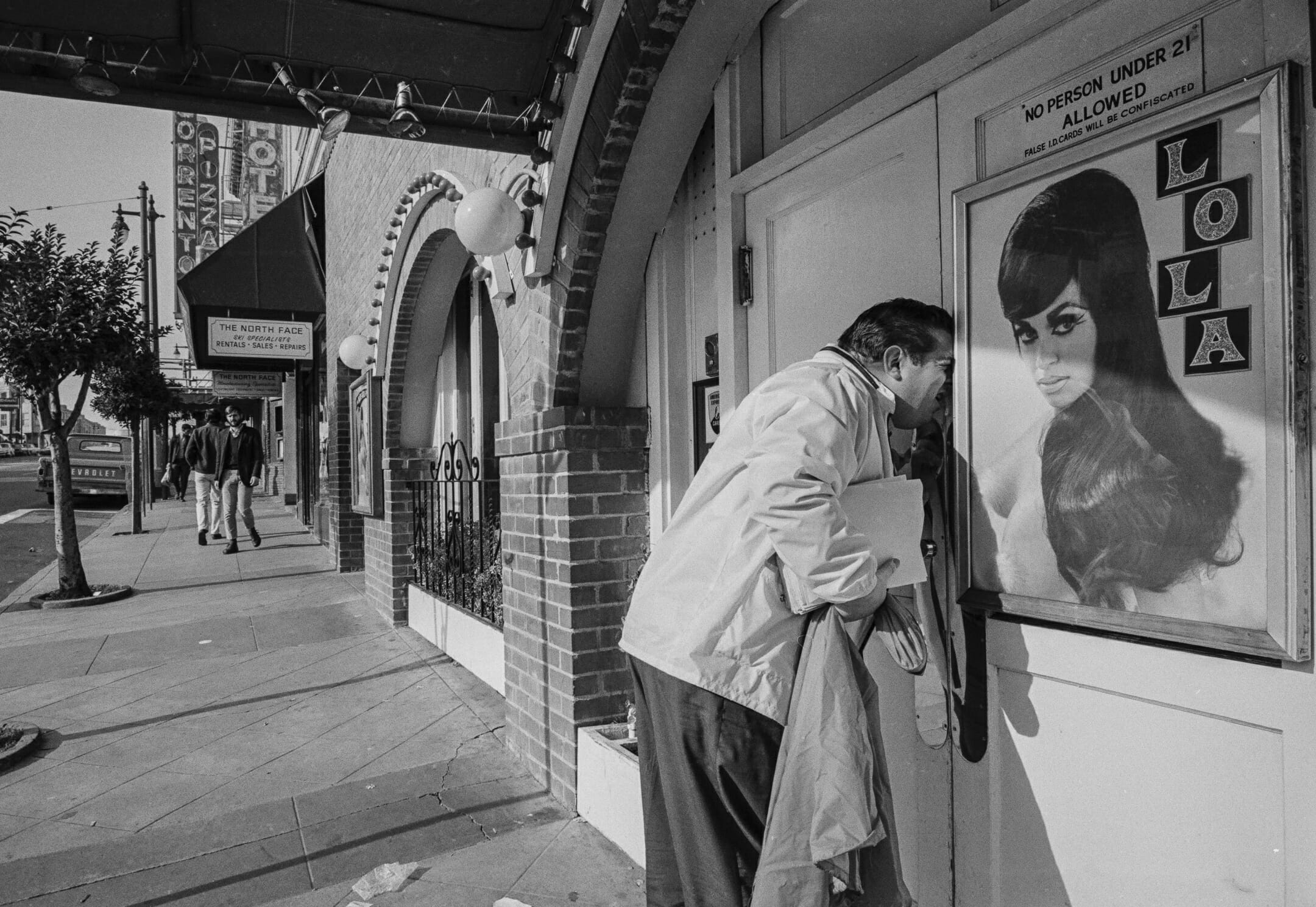
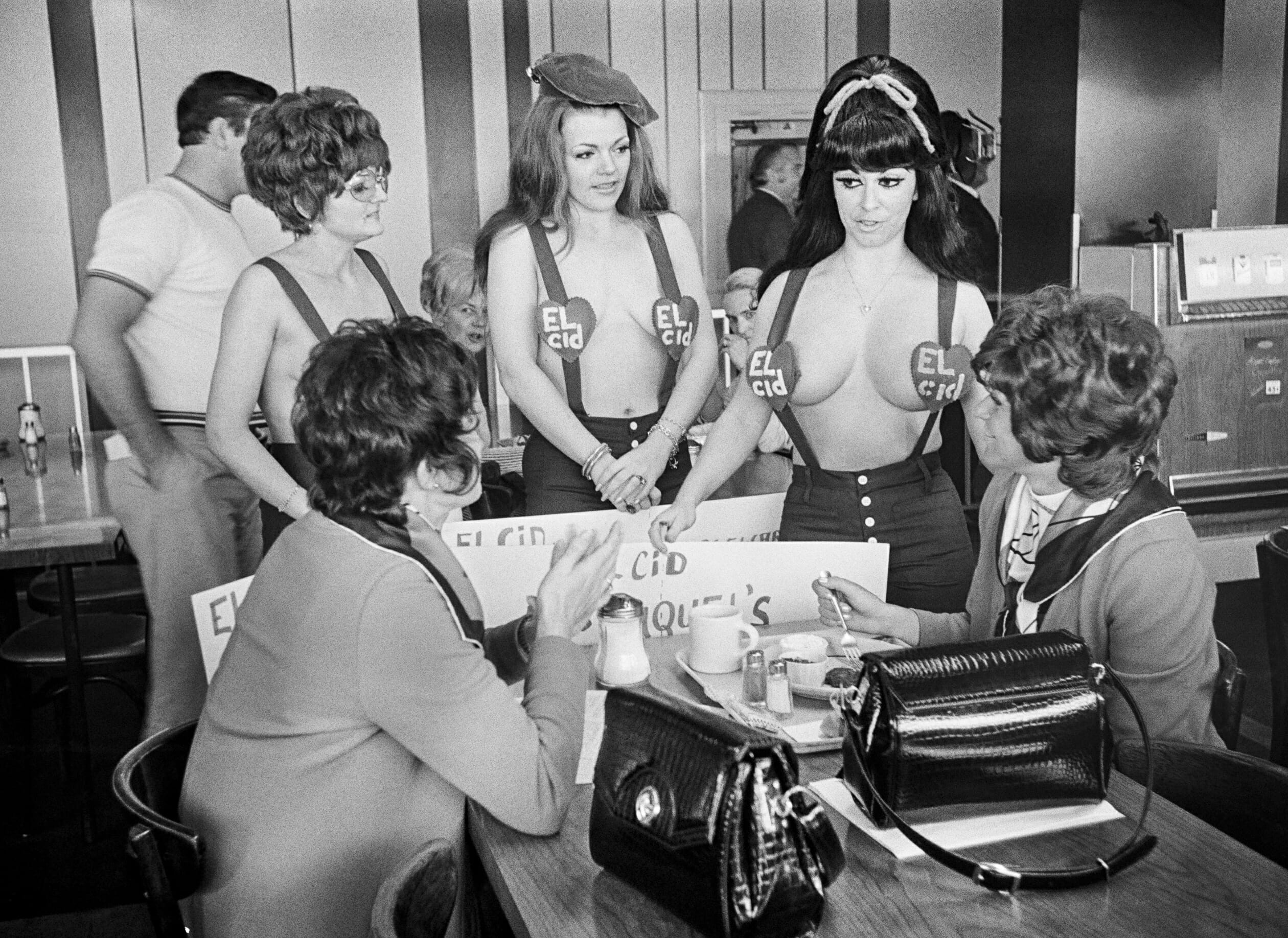
In 1971, El Cid was in heavy competition with the Condor Club featuring Carol Doda, so they sent their own star stripper, Lola Raquel, with two other dancers to the San Francisco airport in a marketing stunt to drum up business for the club.
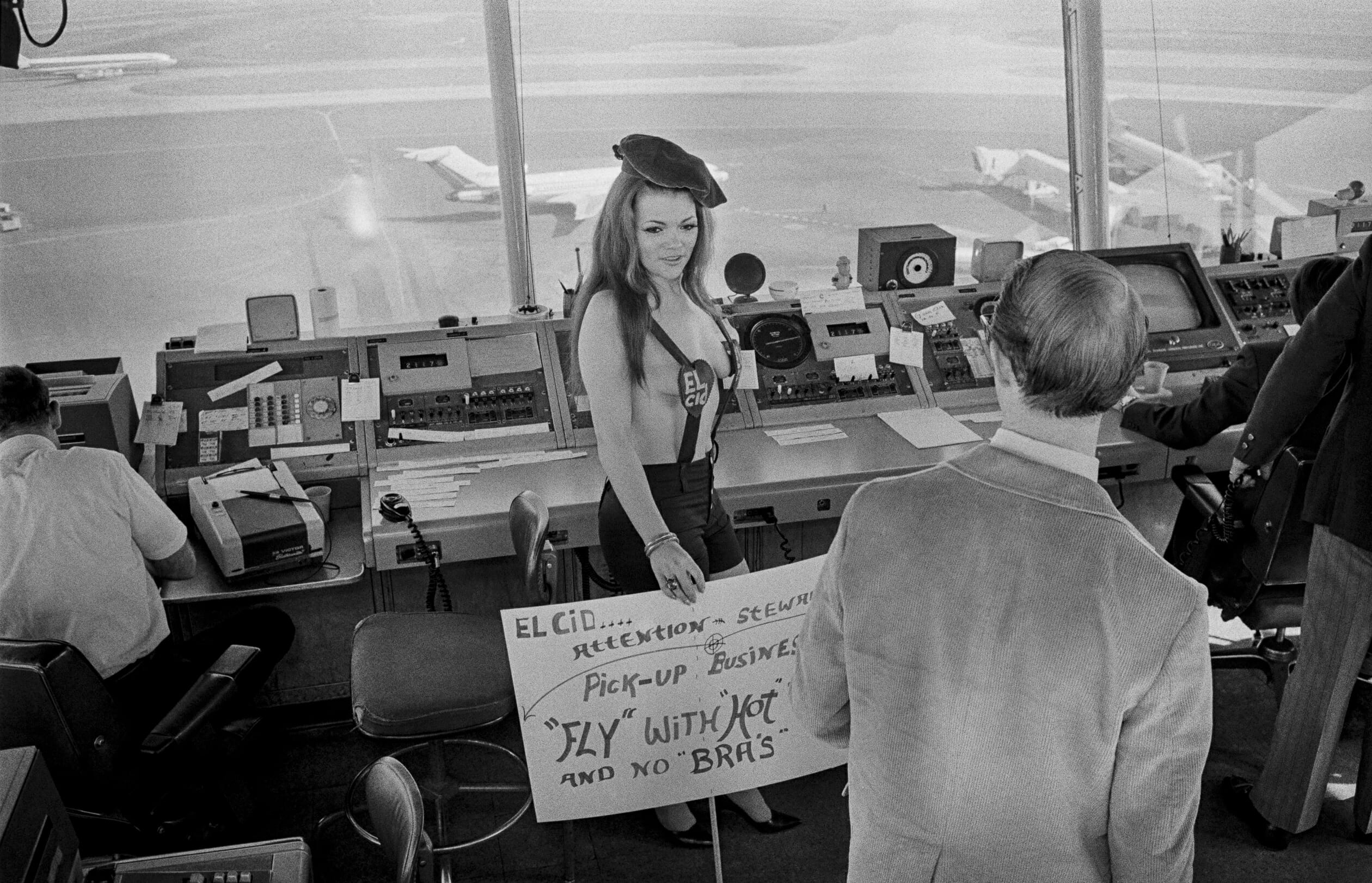
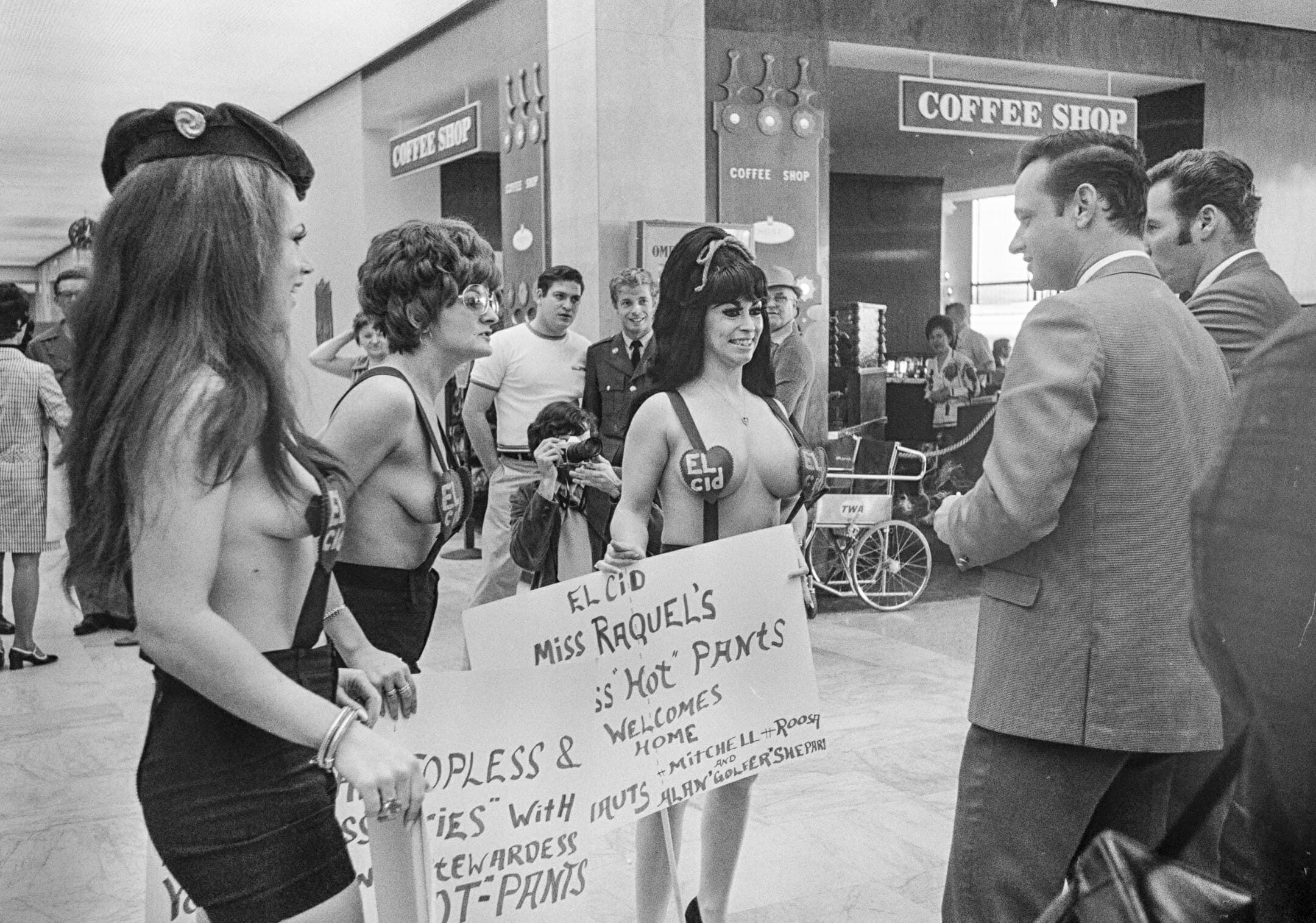
The three women interacted with travelers, workers, the police, and even made it up to the flight control tower, where you can see jet planes landing and taking off outside the windows.
Sunflower primarily focused on photographing alternative news and pop culture beginning in the late 1960’s and continued actively through the 1980s. As a young emerging female photographer Sunflower sought out what she believed were important San Francisco scenes and eventually the greater Bay Area. By the mid 1960s, North Beach was flourishing with new wave artists, exotic dancers, feminist movements and counterculture ideals. Sunflower’s connection to and comfort in North Beach allowed her to form relationships with the community and capture raw and true moments in a sector of the sub-culture that was often frowned upon by conservative America; sex and women’s liberation scared the mainstream.
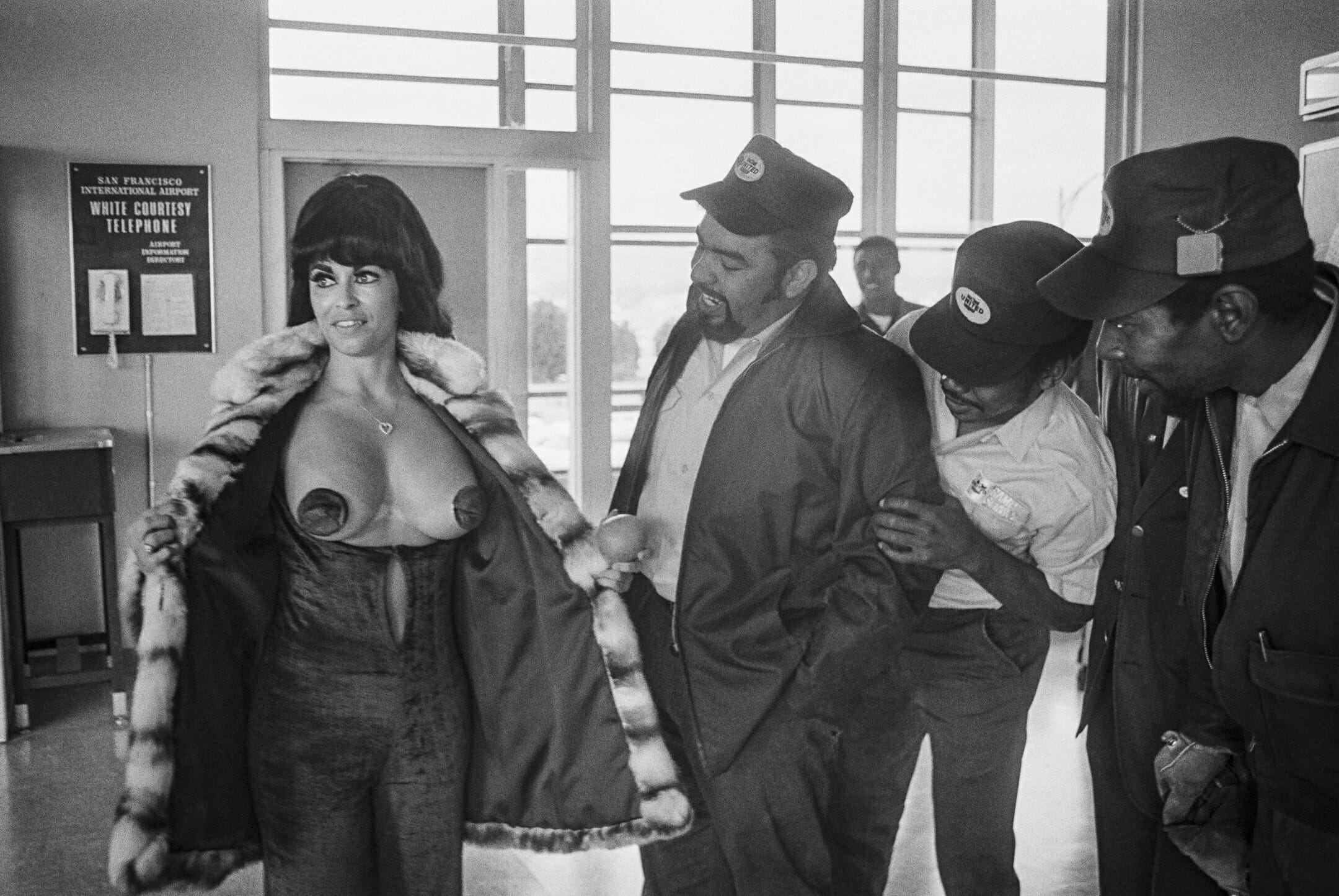
San Francisco topless dancer Lola Raquel getting ready to fly to LA in a Rudi Gernreich designed topless dress with pasties. She was arrested in the airport when she landed in LA - 1969/1970
Sunflower had a thirst for documenting the burgeoning women’s liberation movement. Many of her subjects were iconic young women breaking barriers in a still conservative time. Legendary exotic dancers like Carol Doda and Lola anchored a blossoming scene in North Beach as innovators of their time. Doda was the first public topless dancer in the United States. Dancers like Doda began the long and continued process of normalizing female sexuality by reclaiming ownership of their own bodies and the narrative of female empowerment. Sunflower captured the ethos of these women and the clubs, including The Condor, El Cid, Big Als, The Naked Seduction and others, many of which still populate the North Beach neighborhood today. At the time these clubs were often in legal trouble for the barriers they were breaking, and Sunflower documented these as news stories for the underground neighborhood newspapers. These themes throughout her work elevated into a common story line and we felt it was important to bring them together as a series.
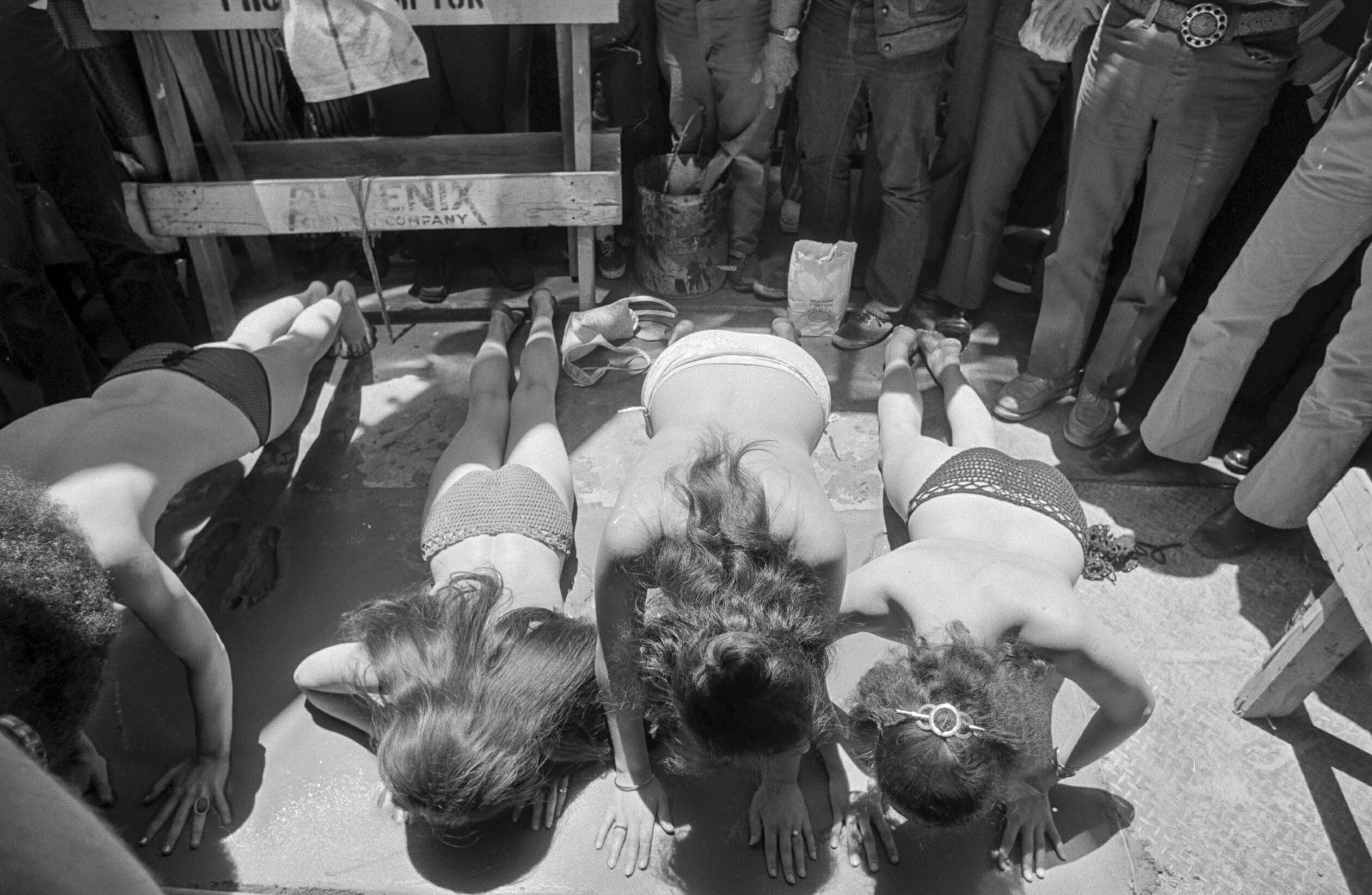
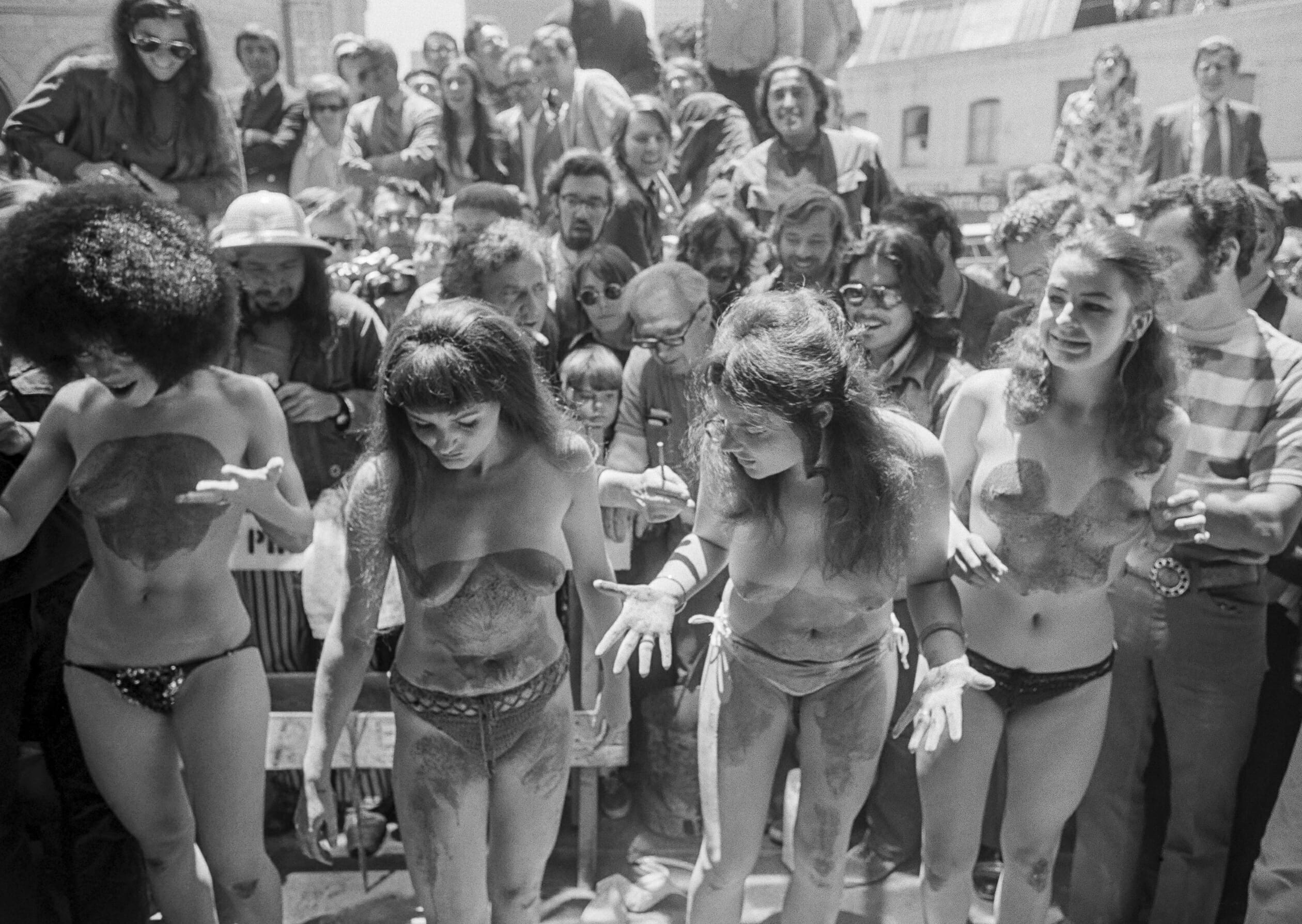
By 1972, famous stripper Carol Doda and the Condor Club anchored North Beach and Carol and some of her fellow dancers immortalized the club, and themselves, by placing their boobs in the concrete in front of the club, which are still there today.
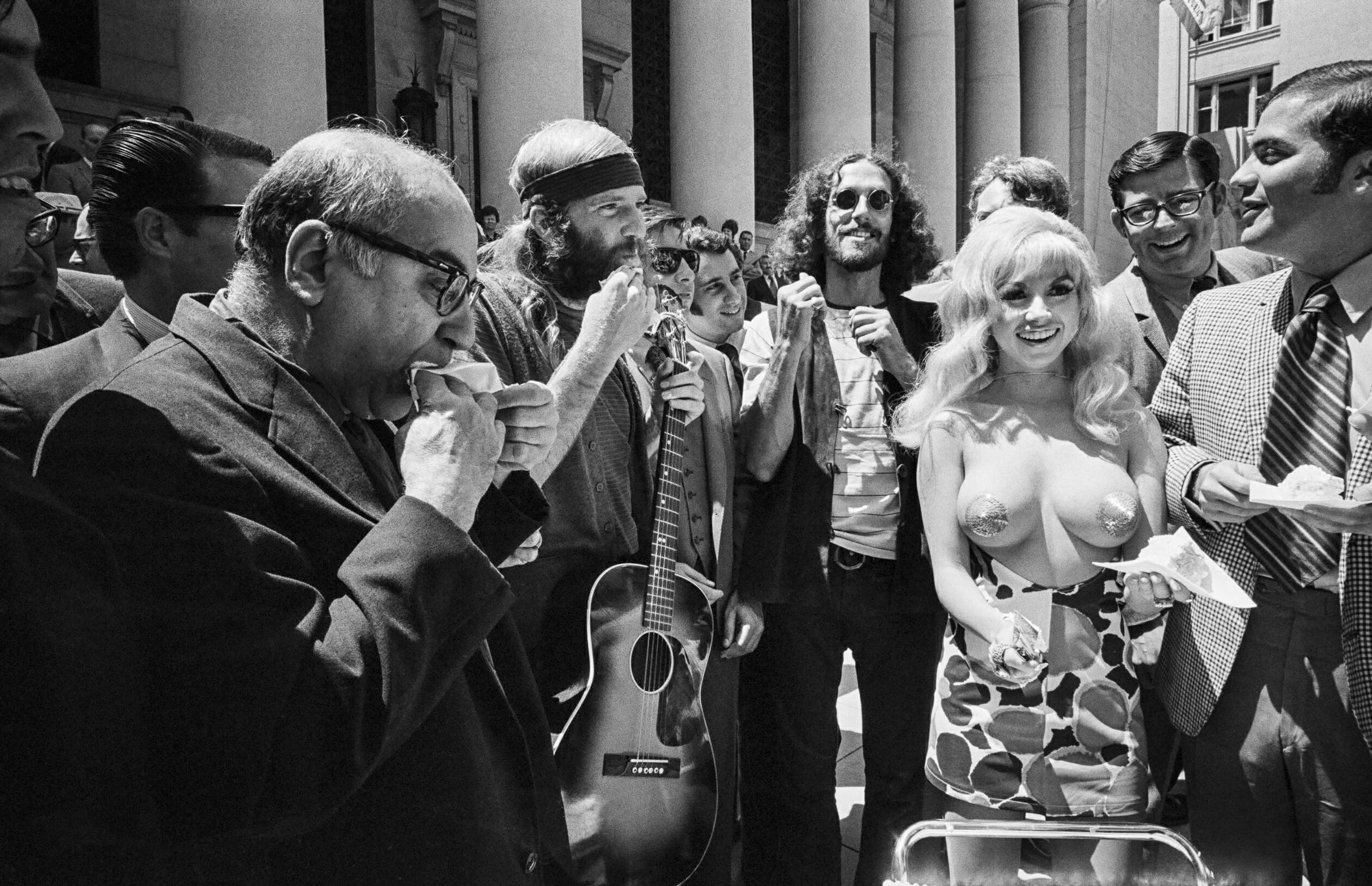
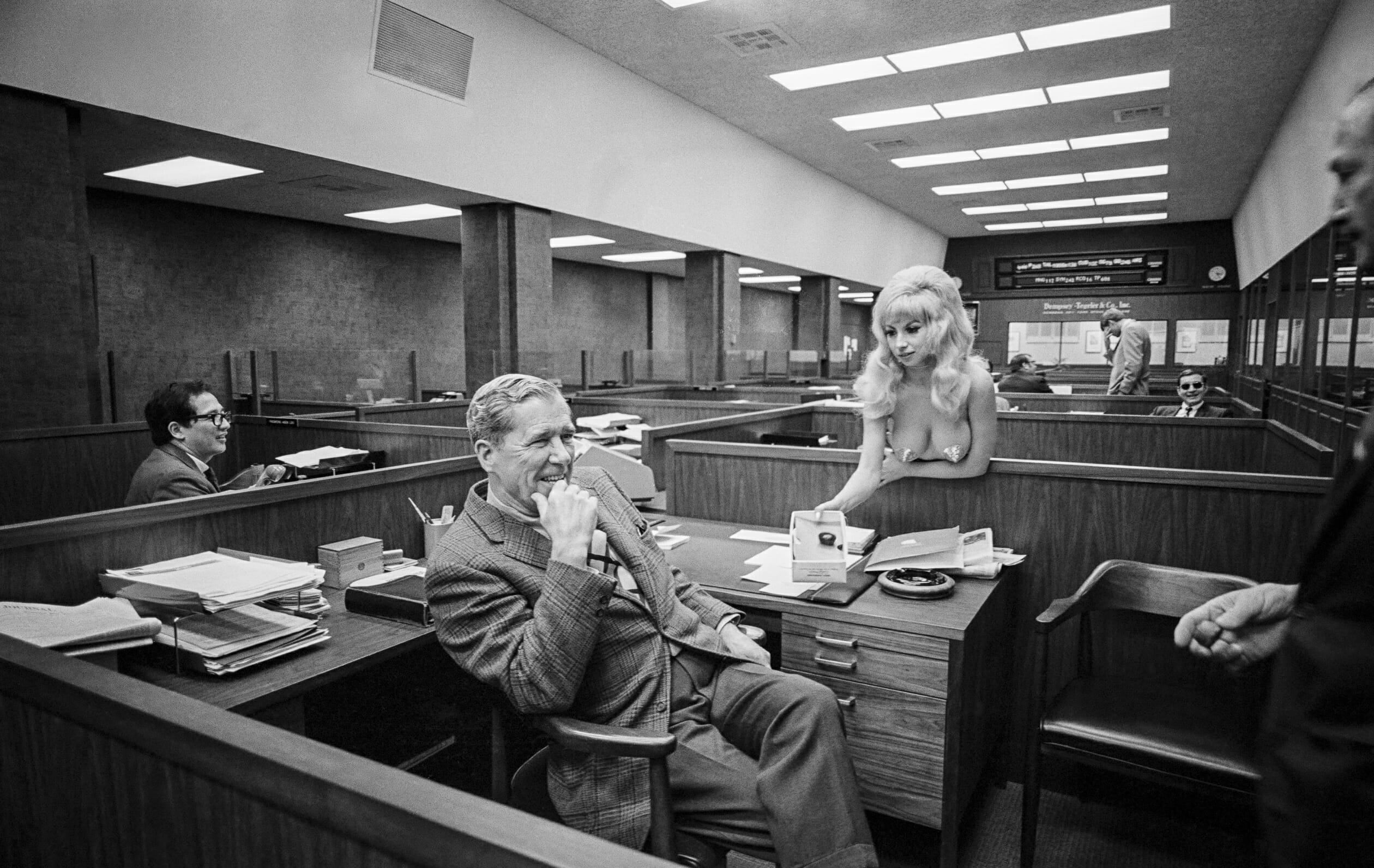
The Condor Club was the first all nude club in San Francisco. Doda was often out and about in San Francisco drumming up business for the Condor Club, where she began her act by being lowered from the ceiling sitting on top of a grand piano.
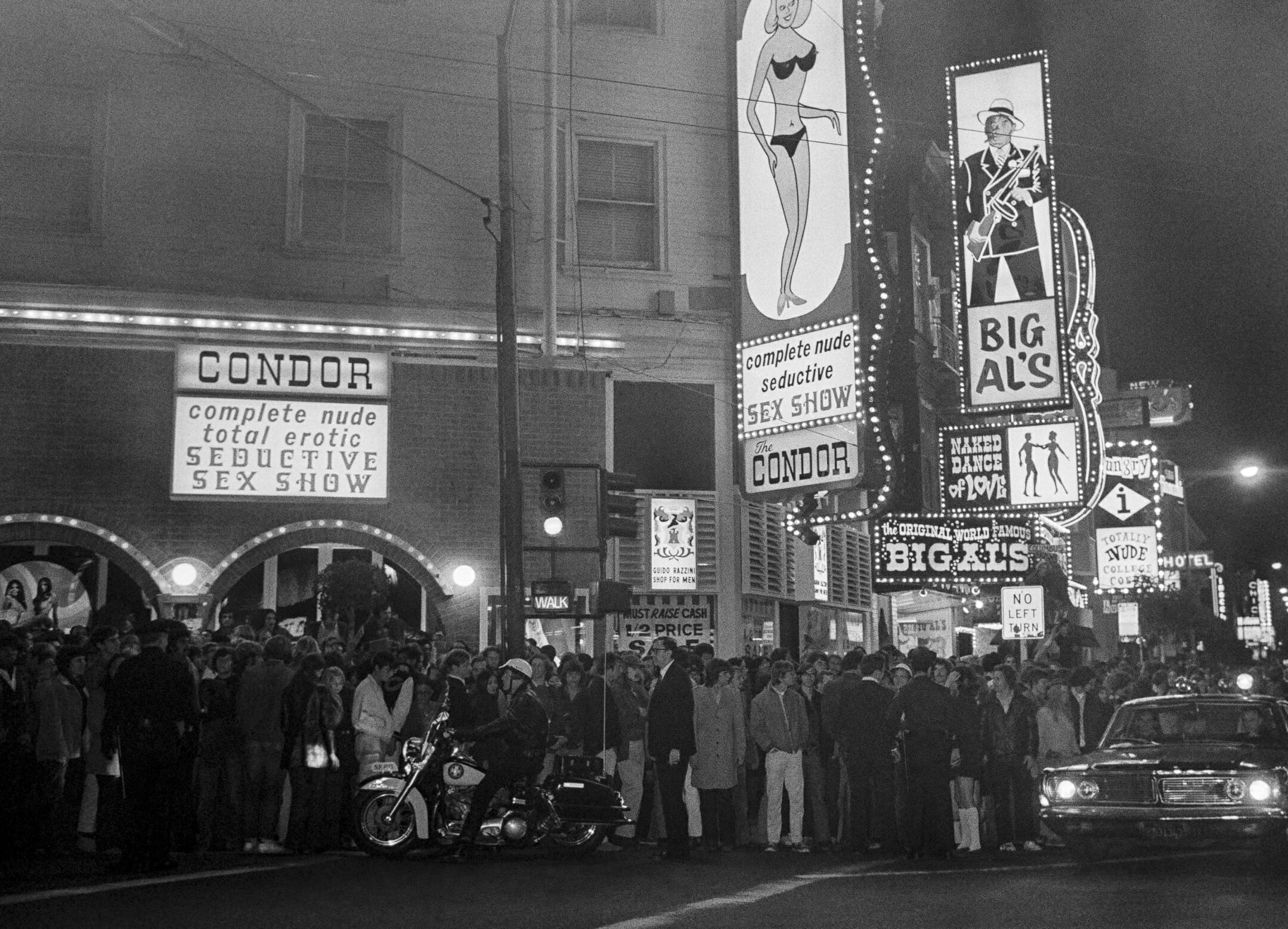
The Condor Club
Sunflower also documented many of the popular events and news stories of the time including The Human Be-In, the North Beach erotic dance movement, President Gerald Ford assassination attempt, and The Rolling Stones tragic 1969 concert in Altamont, CA to name a few. Sunflower illuminated and documented these moments in history through her lens. It was not easy as a young female photographer to establish herself in a profession primarily populated and run by men, yet her talent and interest enabled her to blend in to capture and memorialize these iconic moments of San Francisco pop culture. By the early 1970s, Sunflower had established herself as a reliable photojournalist in San Francisco, being published regularly in print and eventually becoming a wire service stringer where her images began to get a national audience.
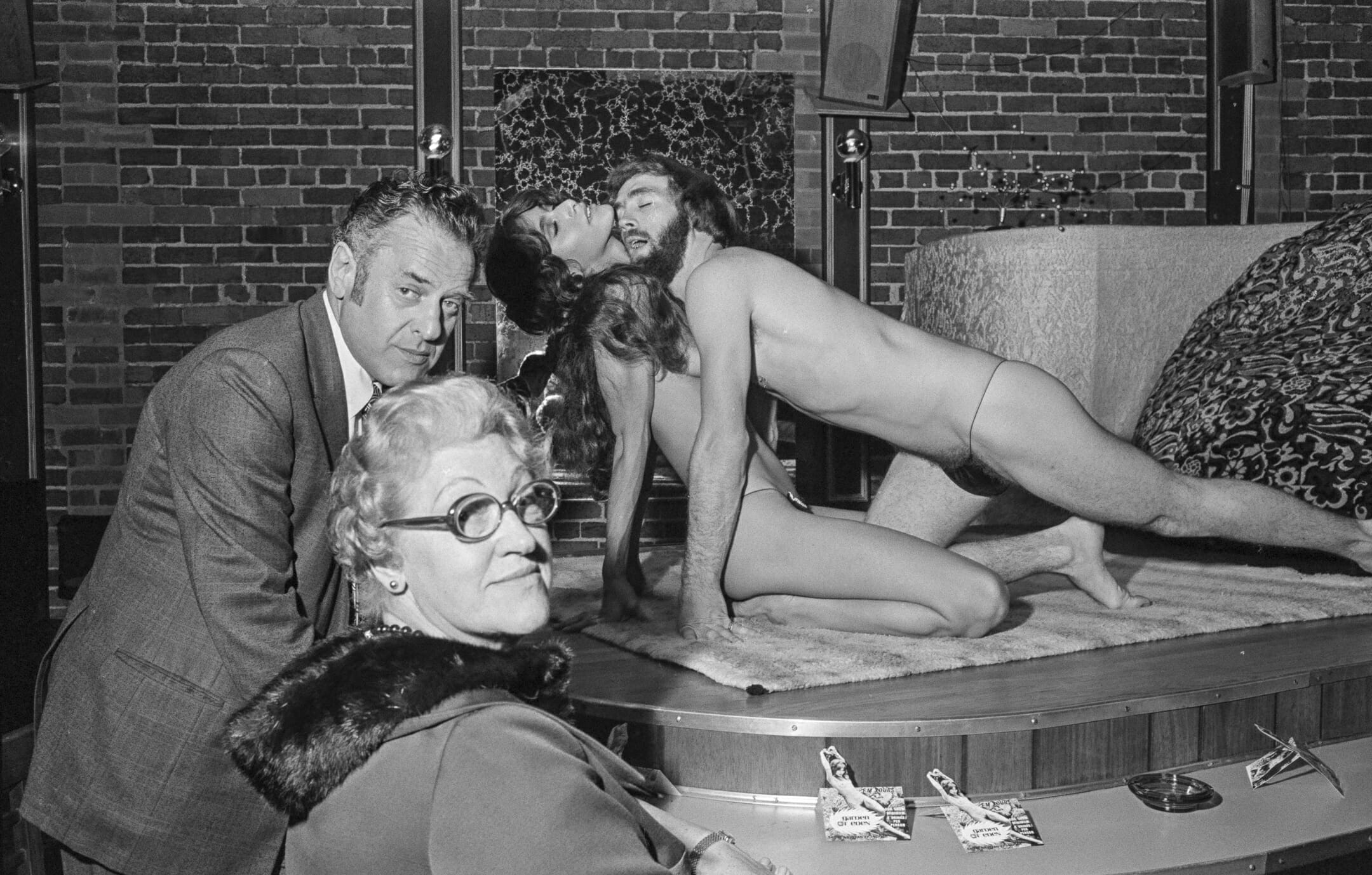
Something important to note is the common thread of heteronormativity displayed in this series of photographs. While women like Carol Doda and Lola broke barriers of the female body, we as the viewer can clearly observe the men in these photographs objectifying the women. I believe Sunflower was consciously trying to document what she viewed as something natural (the female body) but showed how society discriminated against the women who were more at ease with their bodies and the sexual nature of real life that for so long was hidden behind closed doors. Many of these photographs illustrate how the male dominated socio economic power scale tipped in favor of men. Men wanted the luxury to experience this stripper culture but also wanted to control it from a male dominated capitalistic position.
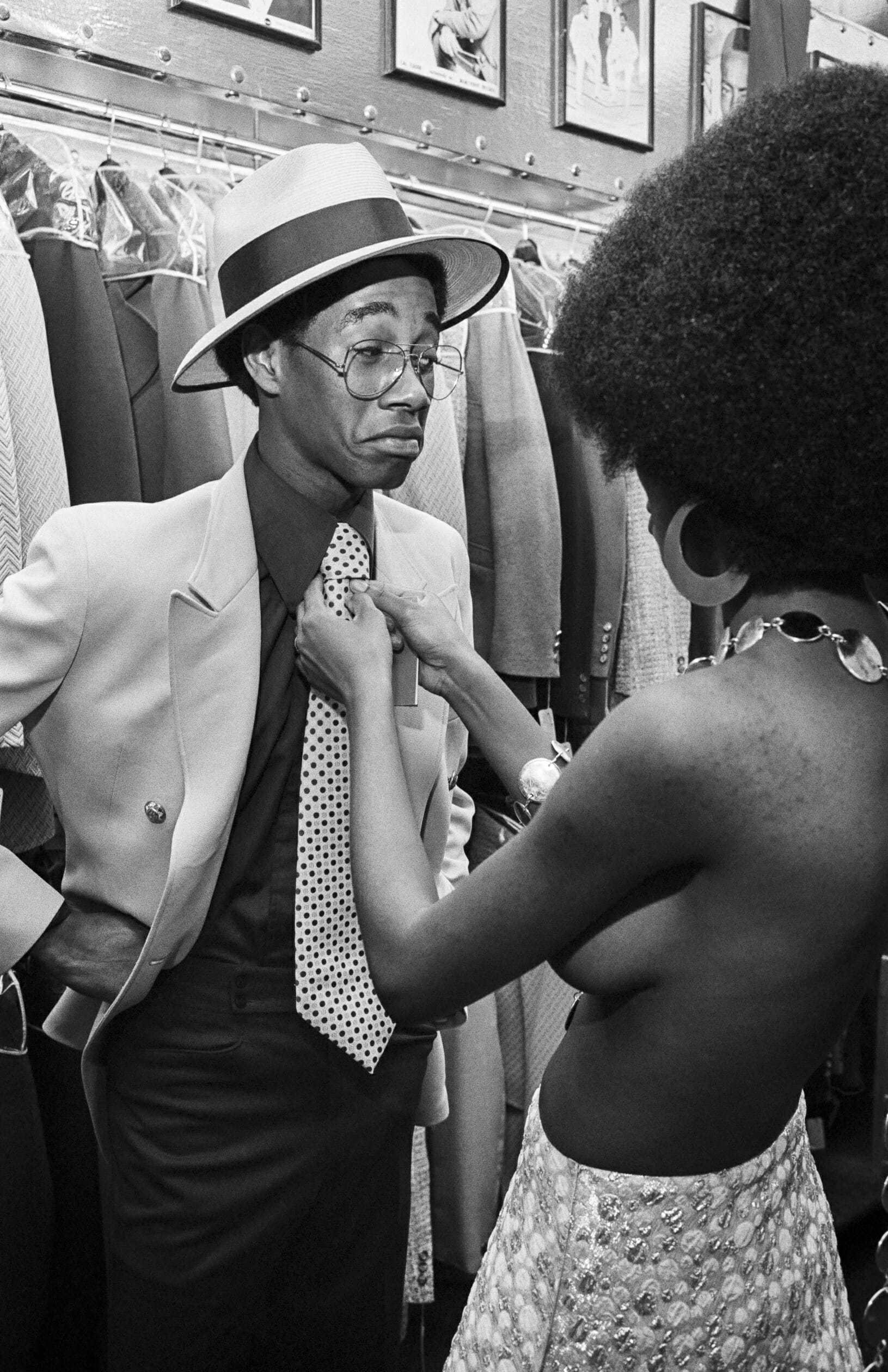
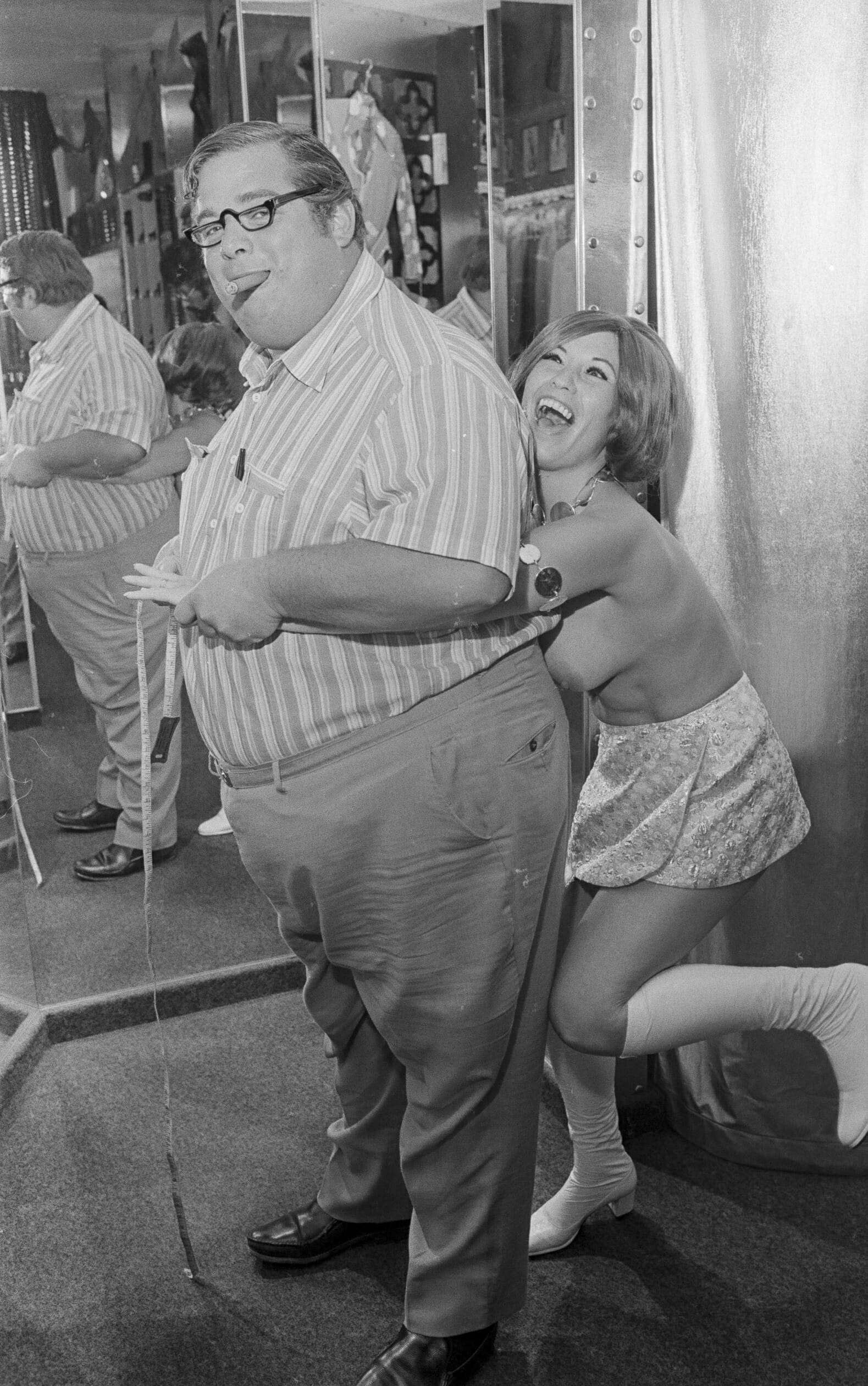
In 1971, in the North Beach neighborhood of San Francisco, a topless men's clothing store opened where all the female sales associates wore the same outfits: mini skirt, go-go boots, mod jewelry, and of course, topless.
When considering archives to add to our collection (retrophotoarchive.com), it is important to both my dad and I that we select pieces that we resonate with and tell a greater story about history. So many of our photographers, Elizabeth Sunflower included, have not had the chance to showcase their works in our modern world. Through building Retro Photo Archive, we are hoping to give these photographers a voice in re-telling moments they captured in history and shine a light on issues that continue to be important today.
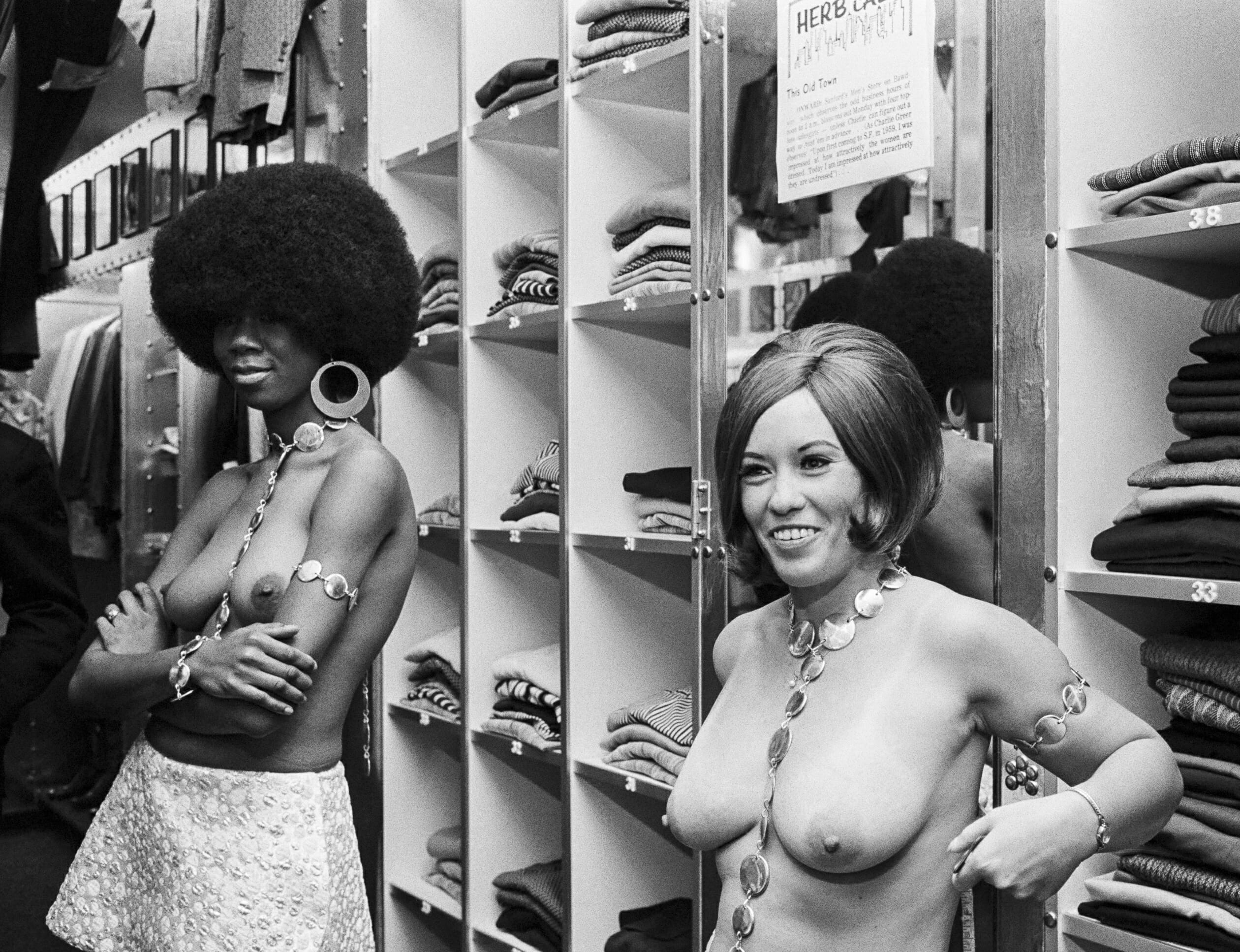
According to Sunflower's captions on the back of her 8x10 work prints, the store only lasted one month before going out of business.

Portrait of Elizabeth Sunflower
Elizabeth Sunflower photographs will be on display at DUPLEX NYC gallery April 22 – May 1st, with the opening Saturday, April 22nd, 4-8pm.
All Photos by Elizabeth Sunflower, ©️Retro Photo Archive